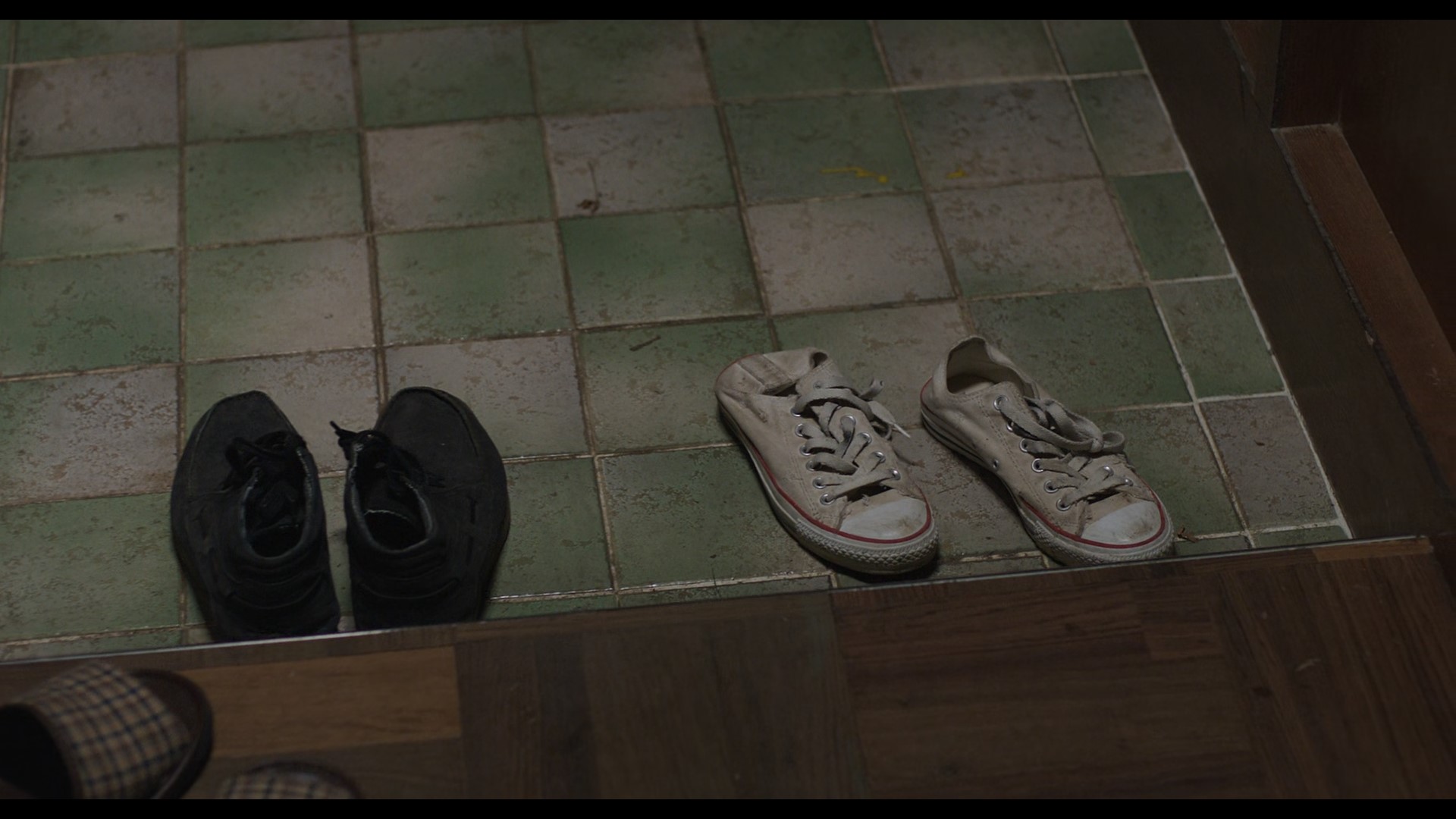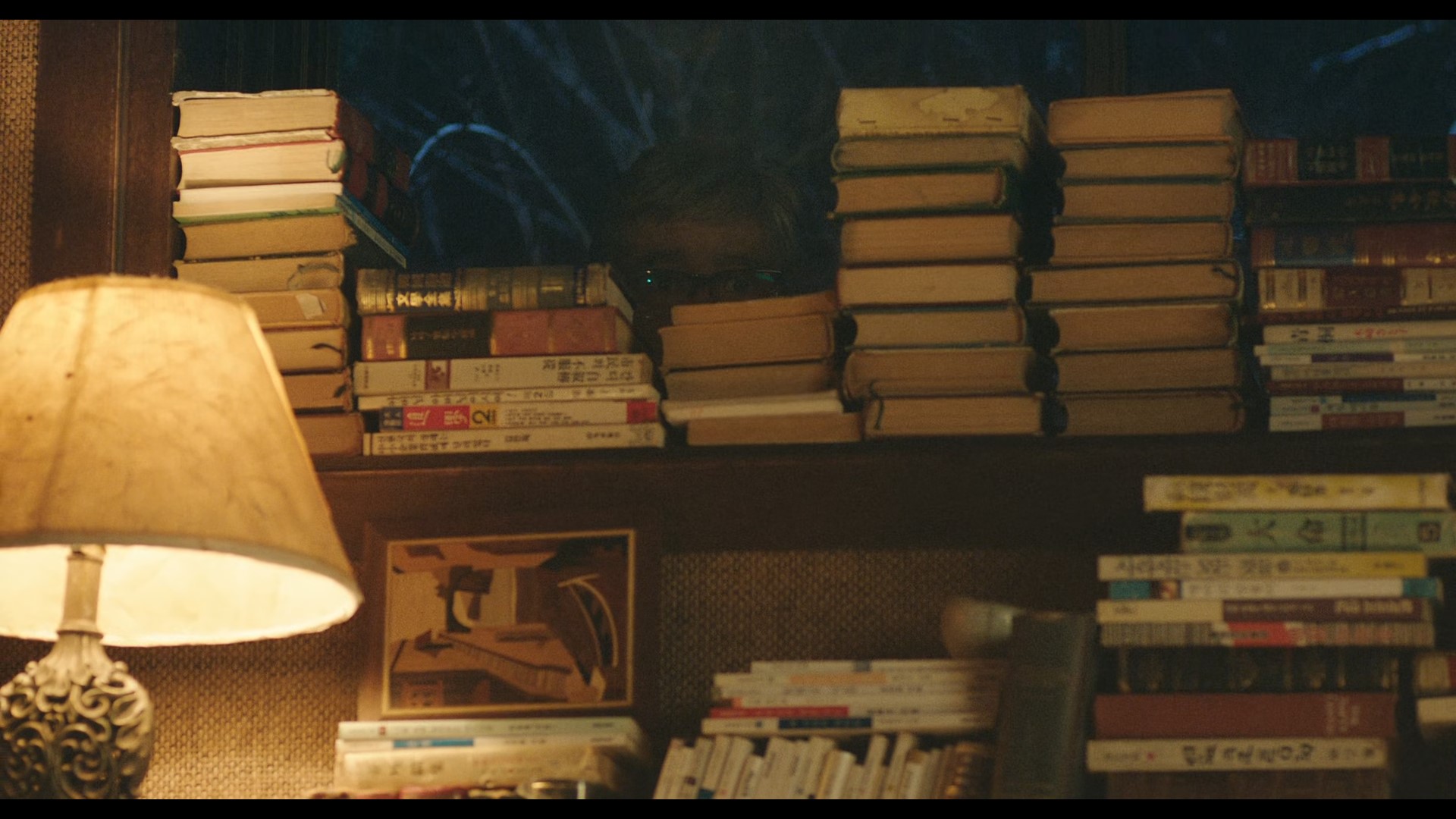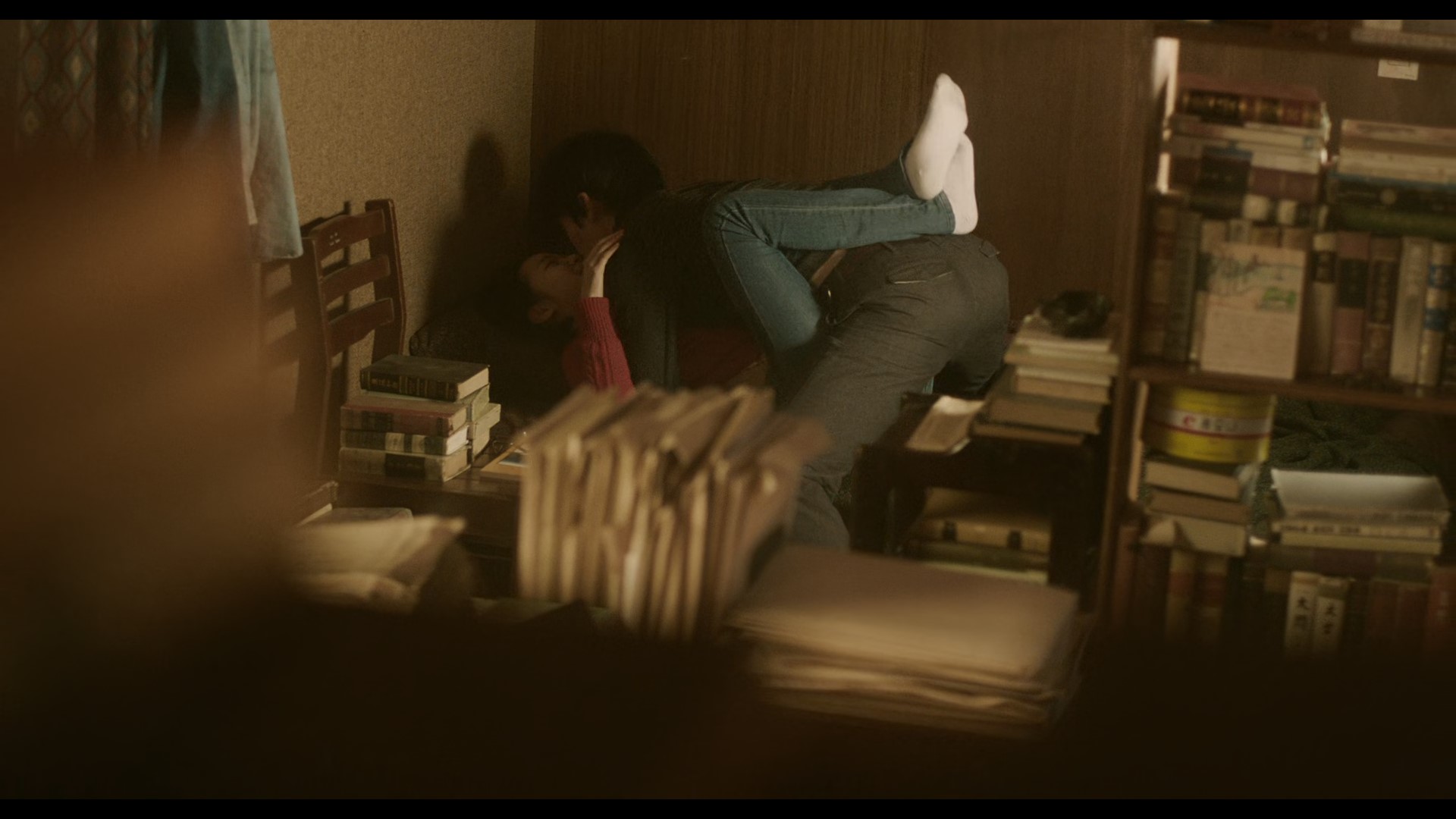The South Korean film Eunkyo explores the complex relationship between three characters bound by age and social stereotypes, and shows how Lee Seong-yo, Seo Ji-woo, and Eunkyo define themselves and others. The tragedy of unconventional relationships makes us examine our preconceptions and prejudices.
My time is free these days. I could spend time with friends at night, but I started watching movies to fill my free time during the day. I was actually quite ignorant about movies, so I chose a movie without much thought. The movie was called “Eunghyo”. To be honest, I didn’t choose it with the most innocent of intentions. However, the message it gave me was deeper and more complex than I expected.
First of all, there are three characters in the movie: Poet Lee Yin-you, writer Xu Jiu, and the titular Eun-Kyo. Eun-gyo, a high school girl, appears in a living space where only two men live. Eun-gyo is pure, innocent, and lively, just like a high school girl. Looking at her, Lee begins to feel more than just interest. Of course, it’s not just sexual feelings. She is more than a sexual object to him, she is also a symbol of the youth he has missed.
The poet writes a novel, “Eun-gyo,” after seeing her, but hides the manuscript in his study. However, when Seo Ji-woo accidentally finds the manuscript of “Eun-gyo” in his study, he reads it on the spot and is shocked, and then disappears without saying what he thinks. Later, Lee Yong-you learns that the novel “Eun-gyo” has been published in a magazine under Seo Ji-woo’s name, and he is furious and kicks her out. During their argument, it is revealed that Lee Yong-you has been ghostwriting Seo Ji-woo’s works.
Meanwhile, Eun-gyo reads Seo Ji-woo’s novel “Eun-gyo” in a magazine in the poet’s yard. When Eun-gyo realizes that the novel contains her name and the details of what happened between her and her grandfather, she begins to feel something different between her and Seo Ji-woo. Although she can’t put it into words, Eun-gyo begins to care about Seo Ji-woo more than ever before. On Seo Ji-woo’s birthday, Eun-gyo forgives Seo Ji-woo for coming to visit her and throws her a small birthday party.

As night falls and she tries to sleep, she begins to hear a small sound in her ears. He hears the sound and goes out to the living room, where he finds Eun-kyo’s shoes next to Seo-ji-woo’s shoes, who should have already gone home. He goes outside and looks through the window at the source of the sound, the study, and sees something he shouldn’t have seen between Seo-ji-woo and Eun-kyo. In a fit of rage, he breaks down Seo Ji-woo’s car at dawn, ultimately leading to her death.


Years later, Eun-Kyo becomes a college student and reads the novel again, realizing that it was only written by Lee Yin-Yo. She visits the poet and thanks him for making her a beautiful person and leaves with a final goodbye, and he sends her off with his heart. And that’s how the movie ends.
I started watching this movie with a light-hearted attitude, but after watching it, I had a hard time organizing my thoughts. Reading reviews online, the theme of the movie is pure love that transcends age, but that’s not what I felt when I watched it. I felt that Lee’s love was clashing with the stereotype of the idealized version of Lee that we want to see.
What is a mold? Age is one of the most common stereotypes we use to define people, but I think it’s not just about age. Instead of the “real me,” which is not defined by anyone, I thought of the “me as others see me” and the “me as others see me” as a kind of frame. We have all had the experience of evaluating not only others, but also ourselves, based on a mold that was either learned from others or created by ourselves. In the movie, I feel that Lee and the other two characters were also looking at each other through the frames they had created for themselves.
Lee had Eun-gyo in his heart, but he replaced the expression of his feelings with a novel. I think this is because Yi Yun unknowingly saw herself in the mold of Yi Yun, an old man in his seventies, that others had made for her. Who would want to think of themselves as an old man from the beginning, but in the end, Lee was living in a mold that was defined by others. In his famous line, “Just as your youth is not a reward for your hard work, my old age is not a punishment for my wrongdoing,” I thought he was trying to break away from the way society views the elderly.
Seo Ji-woo seems to be the most conventional of the three characters. The conflict between Seo Ji-woo and Lee Yi-you that arises when Seo Ji-woo discovers the manuscript of the novel “Eun-gyo” and publishes it in a magazine reveals two of Seo Ji-woo’s frames. First of all, Seo Ji-woo had been with the poet for a long time, but he looked at her in the same mold as everyone else. “The world doesn’t call the relationship between a seventy-year-old man and a high school girl love, it’s called a dirty scandal,” he says, which makes me think that the character symbolizes all of us who are stuck in a rut and sometimes can’t think flexibly. I also saw Seo Jiu struggling with the rut he created for himself. The way he hides his true self as a fake writer who can’t write without the help of the poet Lee Yong-ryo, and risks his guilt to publish the novel “Eun-gyo” in order to be labeled as a writer, shows how desperate he is to fit into a mold.
Eun-gyo seems to be the most socially unconventional of the three characters because of her young age and lack of social accomplishments. Of course, Eun-gyo does stereotype Seo Ji-woo at the beginning of the movie, saying that she doesn’t know how he became a writer because he was an engineering student, but I think that was almost a joke. Instead, I think the stereotype that Lee Yi-yoon creates for Eun-gyo is worth thinking about. While Yi Yun himself is trying to escape the way society views the aging, he sees Eun-Kyo as a symbol of youth and innocence. Unknowingly, Yi Yun also fails to see Eun-Kyo for what she is and puts her in a box. In the end, after seeing what happened in the study, Yi Yun was forced to erase his own frame of reference.
If the poet Yi Yun had been the same as the human Yi Yun, if Xu Jiu hadn’t turned Yi Yun’s love into a dirty scandal, and if Yi Yun had seen Eun Kyo as she really was, the tragic conflict that arose from the novel Eun Kyo might not have happened.
It wasn’t just the three characters in the novel. I realized that I, too, have unknowingly looked at people through my own preconceived notions and fit myself into a mold. I have often fallen into prejudice, preconceived notions, and worried about how I should look to others. Everyone must have their own way of looking at the world, but as the three characters in Eunghyo show, it is necessary to change one’s own frame of reference to be more flexible and correct, rather than to define others or oneself based on it.
The movie “Eun Gyo” has become a movie that made me think about my own frame of mind, although it was not its original purpose. In the past two years since watching the movie, I have gotten into the habit of thinking differently, trying to expand my frame of reference little by little. The results of my efforts are still a work in progress, but I’ll have to think about it often to make sure that I don’t become the next Lee Tingyou or Xu Jiu, who trap themselves.
